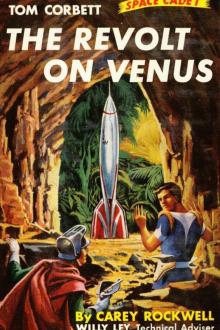Hypatia — or New Foes with an Old Face by Charles Kingsley (e book reader TXT) 📗

- Author: Charles Kingsley
Book online «Hypatia — or New Foes with an Old Face by Charles Kingsley (e book reader TXT) 📗». Author Charles Kingsley
‘The women?’
‘The women, lad. Do you suppose that they heap priests and churches with wealth for nothing? They have their reward. Do you suppose that a preacher gets into the pulpit of that church there, without looking anxiously, at the end of each peculiarly flowery sentence, to see whether her saintship there is clapping or not? She, who has such a delicate sense for orthodoxy, that she can scent out Novatianism or Origenism where no other mortal nose would suspect it. She who meets at her own house weekly all the richest and most pious women of the city, to settle our discipline for us’ as the court cooks do our doctrine. She who has even, it is whispered, the ear of the Augusta Pulcheria herself, and sends monthly letters to her at Constantinople, and might give the patriarch himself some trouble’ if he crossed her holy will!’
‘What! will Cyril truckle to such creatures?’
‘Cyril is a wise man in his generation—too wise, some say, for a child of the light. But at least, he knows there is no use fighting with those whom you cannot conquer; and while he can get money out of these great ladies for his almshouses, and orphan-houses, and lodging-houses, and hospitals, and workshops, and all the rest of it—and in that, I will say for him, there is no man on earth equal to him, but Ambrose of Milan and Basil of Caesarea—why, I don’t quarrel with him for making the best of a bad matter; and a very bad matter it is, boy, and has been ever since emperors and courtiers have given up burning and crucifying us, and taken to patronising and bribing us instead.’
Philammon walked on in silence by the old priest’s side, stunned and sickened.... ‘And this is what I have come out to see—reeds shaken in the wind, and men clothed in soft raiment, fit only for kings’ palaces!’ For this he had left the dear old Laura, and the simple joys and friendships of childhood, and cast himself into a roaring whirlpool of labour and temptation! This was the harmonious strength and unity of that Church Catholic, in which, as he had been taught from boyhood, there was but one Lord, one Faith, one Spirit. This was the indivisible body, ‘without spot or wrinkle, which fitly joined together and compacted by that which every member supplied, according to the effectual and proportionate working of every part, increased the body, and enabled it to build itself up in Love!’ He shuddered as the well-known words passed through his memory, and seemed to mock the base and chaotic reality around him. He felt angry with the old man for having broken his dream; he longed to believe that his complaints were only exaggerations of cynic peevishness, of selfish disappointment; and yet, had not Arsenius warned him? Had he not foretold, word for word, what the youth would find-what he had found? Then was Saint Paul’s great idea an empty and an impossible dream? No! God’s word could not fail; the Church could not err. The fault could not be in her, but in her enemies; not, as the old man said, in her too great prosperity, but in her slavery. And then the words which he had heard from Cyril at their first interview rose before him as the true explanation. How could the Church work freely and healthily while she was crushed and fettered by the rulers of this world? And how could they be anything but the tyrants and antichrists they were, while they were menaced and deluded by heathen philosophy, and vain systems of human wisdom? If Orestes was the curse of the Alexandrian Church, then Hypatia was the curse of Orestes. On her head the true blame lay. She was the root of the evil. Who would extirpate it?....
Why should not he? It might be dangerous; yet, successful or unsuccessful, it must be glorious. The course of Christianity wanted great examples. Might he not-and his young heart beat high at the thought—might he not, by some great act of daring, self-sacrifice, divine madness of faith, like David’s of old, when he went out against the giant—awaken selfish and luxurious souls to a noble emulation, and recall to their minds, perhaps to their lives, the patterns of those martyrs who were the pride, the glory, the heirloom of Egypt? And as figure after figure rose before his imagination, of simple men and weak women who had conquered temptation and shame, torture and death, to live for ever on the lips of men, and take their seats among the patricians of the heavenly court, with brows glittering through all eternities with the martyr’s crown, his heart beat thick and fast, and he longed only for an opportunity to dare and die.
And the longing begot the opportunity. For he had hardly rejoined his brother visitors when the absorbing thought took word again, and he began questioning them eagerly for more information about Hypatia.
On that point, indeed, he obtained nothing but fresh invective; but when his companions, after talking of the triumph which the true faith had gained that morning, went on to speak of the great overthrow of Paganism twenty years before, under the patriarch Theophilus; of Olympiodorus and his mob, who held the Serapeium for many days by force of arms against the Christians, making sallies into the city, and torturing and murdering the prisoners whom they took; of the martyrs who, among those very pillars which overhung their heads, had died in torments rather than sacrifice to Serapis; and of the final victory, and the soldier who, in presence of the trembling mob, clove the great jaw of the colossal idol, and snapped for ever the spell of heathenism, Philammon’s heart burned to distinguish himself like that soldier, and to wipe out his qualms of conscience by some more unquestionable deed of Christian prowess. There were no idols now to break but there was philosophy—‘Why not carry war into the heart of the enemy’s camp, and beard Satan in his very den? Why does not some man of God go boldly into the lecture-room of the sorceress, and testify against her to her face?’
‘Do it yourself, if you dare,’ said Peter. ‘We have no wish to get our brains knocked out by all the profligate young gentlemen in the city.’
‘I will do it,’ said Philammon.
‘That is, if his holiness allows you to make such a fool of yourself.’
‘Take care, sir, of your words. You revile the blessed martyrs, from St. Stephen to St. Telemachus, when you call such a deed foolishness.’
‘I shall most certainly inform his holiness of your insolence.’
‘Do so,’ said Philammon, who, possessed with a new idea, wished for nothing more. And there the matter dropped for the time. ...............
‘The presumption of the young in this generation is growing insufferable,’ said Peter to his master that evening.
‘So much the better. They put their elders on their mettle in the race of good works. But who has been presuming to-day?’
‘That mad boy whom Pambo sent up from the deserts dared to offer himself as champion of the faith against Hypatia. He actually proposed to go into her lecture-room and argue with her to her face. What think you of that for a specimen of youthful modesty and self-distrust?’
Cyril was silent a while.
‘What answer am I to have the honour of taking back? A month’s relegation





Comments (0)